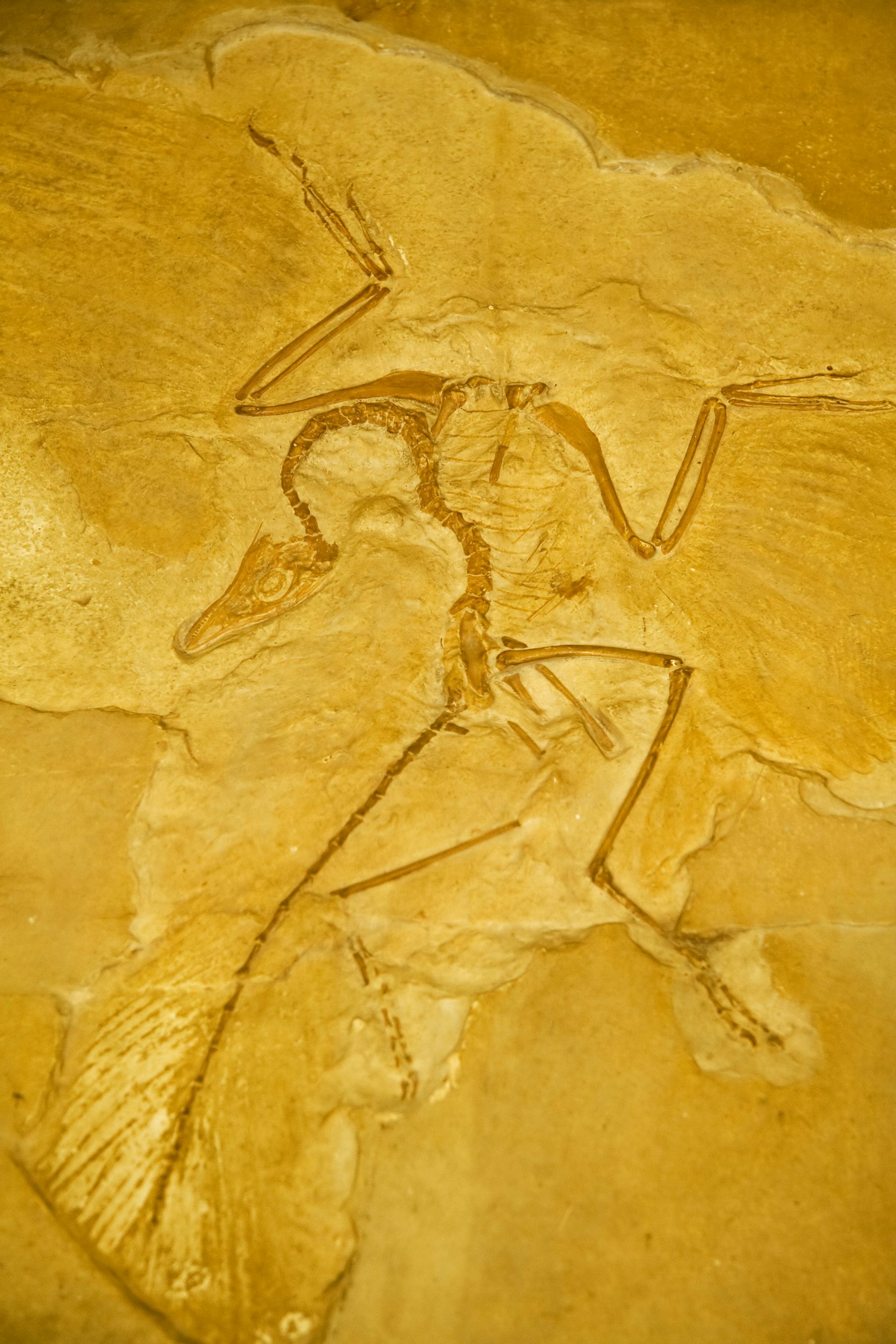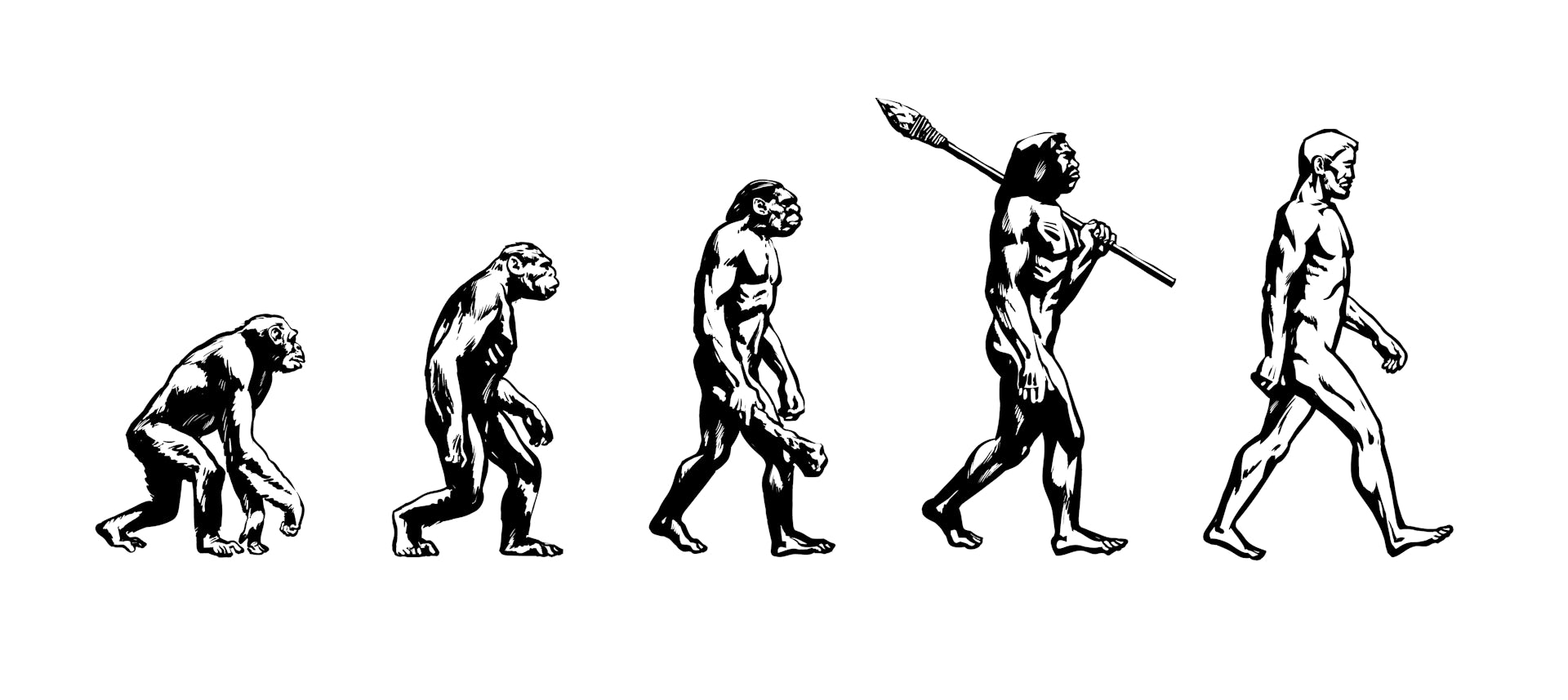Creationism in Crisis
What Internet Creationists Tell Us About Creationists
What Internet Creationists Tell Us About Creationists
Listening to creationists can strengthen our understanding of evolution
Back in the 1980,s in the early days of the Internet, I was what was known as a 'SysOp' for a few CompuServe fora. I first got involved in the old UK Medical forum because of my interest in medical science as an Ambulance paramedic, then I joined a couple more fora - UK Forum and UK Current Affairs. Each forum had several sections for which particular SysOps were responsible. UK Forum, for example, had sections on Religion and Science as well as Politics. UK Current Affairs had sections on NHS, Northern Ireland, Economics, UK Constitution, etc. I also joined SciMath, a US-based forum.
It was in one of those fora that I first encountered American Creationists and Bible literalists, in addition to run-of-the-mill fundamentalists.
At first, I assumed they were joking, as it was hard to believe the childishness and scientific ignorance being displayed. As a child, we used, 'He/she still believes in Noah's Ark', to call someone childish and believing in fairy stories. In due course, we also stopped believing in the Tooth Fairy and Santa.
No-one I knew took the Bible literally anymore and no-one believed Earth was just a few thousand years old, any more so than they believed the sun orbits Earth, or the Earth is flat, or that we really are all descended from Adam and Eve. Sure, they were in the Bible, which some people still took seriously as a historical document, but it was generally assumed that the creation stories in Genesis were some sort of metaphor or allegory, although no-one seemed entirely sure for what. The tales, like those of Noah and Lot's wife, were so patently counter-factual that they must have had some deeper meaning...
So, it was amazing to discover that in America, the most advanced of countries and 'leader of the Free World', there really were a large number of people who still believed what our grandparents once believed, and who knew so little of science, geology and history that they couldn't see any flaws in the arguments they were putting forward.
But what that did for me at the time was to spur me on to learn, to understand their arguments and more importantly, to refute them with scientific facts. In short, it was debating with creationists that convinced me more and more that not only were they wrong, but that they were deluded victims of fraud who came from a culture that made them believe they could only be important enough if they had a close personal relationship with the creator of the universe who made it all with them in mind.
And the more I learned about science the more obvious it became why their cults expend so much energy trying to rubbish it, and why you can never get a creationist to read primary science sources, preferring to stick to their safe echo-chambers. To them, science is toxic.
So, what else can we learn from creationists?

All they are showing us is how ignorant they need their target marks to be about the field of basic science, and so the fact their theirs is a cult of anti-science ignorance that regards facts as toxic and the truth as something to be avoided at all costs.
And this surely can't go unrecognised by people with even a modicum of intellectual integrity.
There is a negative correlation between Internet access and the decline of religious fundamentalism in the USA and elsewhere, as shown in the above chart, but that could be mere coincidence, and not because of any causal link.
There is limited evidence to suggest that the false arguments and disinformation promulgated by creationists have contributed to the decline in religiosity in the United States. While some studies have found a correlation between scientific knowledge and lower levels of religiosity, it is difficult to establish a direct causal relationship.In the following article by the author I drew on in my previous blog post, Professor Paul Braterman, Hon. Research Fellow; Professor Emeritus, University of Glasgow, points out that, just as I did back in the 1980's and 1990's, we can be prompted to find out the answers that creationists would have us and their target dupes believe are unanswered (and therefore unanswerable) questions for science. For example, "How can a Universe come from nothing?"; "How did the first cell arise?", and the even more childish, "If humans evolved from monkeys/apes/fish, why are there still monkeys/apes/fish?"
One possible explanation is that the promotion of anti-scientific views by some religious groups may cause individuals to question their faith and turn away from organized religion. However, there are likely other factors at play, such as changing societal attitudes and cultural shifts.
It is also worth noting that not all religious individuals reject scientific theories like evolution. Many religious individuals are able to reconcile their faith with science and see no conflict between the two.
Overall, while the false arguments and disinformation promulgated by creationists may play a role in the decline of religiosity, it is likely only one of many contributing factors, and more research is needed to fully understand the relationship between science, religion, and the decline of religiosity.
[Me] Is there any research into this? references, please?
There have been several studies exploring the relationship between scientific knowledge, anti-scientific views, and religiosity. Here are a few references:These studies and others have found a correlation between scientific knowledge and lower levels of religiosity, as well as a link between anti-scientific views and lower levels of scientific knowledge. However, it is important to note that correlation does not necessarily imply causation, and other factors may also be at play.
- Ecklund, E. H., & Scheitle, C. P. (2007). Religion among academic scientists: Distinctions, disciplines, and demographics. Social Problems, 54(2), 289-307. https://doi.org/10.1525/sp.2007.54.2.289
- Putnam, R. D., & Campbell, D. E. (2010). American Grace: How Religion Divides and Unites Us. Simon and Schuster.
- Hout, M., & Fischer, C. S. (2014). Explaining Why More Americans Have No Religious Preference: Political Backlash and Generational Succession, 1987-2012. Sociological Science, 1, 423-447. https://doi.org/10.15195/v1.a24
- Gauchat, G. (2012). Politicization of science in the public sphere: A study of public trust in the United States, 1974 to 2010. American Sociological Review, 77(2), 167-187. https://doi.org/10.1177/0003122412438225
- Pew Research Center. (2015). Religion and Science. https://www.pewresearch.org/science/2015/10/22/religion-and-science/
And some of the questions may not yet have been answered but are works in progress - which is very different from being unanswerable.
Professor Braterman's article is reprinted here under a Creative Commons Licence, reformatted for stylistic consistency:

Listening to creationists can strengthen our understanding of evolution
Source: Shutterstock
Charles Darwin, who first advanced the theory of evolution, to the chagrin of creationists everywhere.
Source: Shutterstock
Paul Braterman, University of Glasgow
Can we learn from creationists – people who deny evolution? I think so. It is not enough to say, as Richard Dawkins notoriously did: “If you meet somebody who claims not to believe in evolution, that person is ignorant, stupid or insane…” That’s a dead end. Conversation is a two-way street, and if I want creationists to learn from me, I must at least in principle be ready to learn from them.
My recent Conversation article, How to slam dunk creationists when it comes to the theory of evolution, led to brisk correspondence with a number of thoughtful creationists, so it would be useful to examine their arguments on their merits, if only to sharpen our own.
Creationists always ask about the origin of complex systems, that is, systems that require many interacting parts. How could one part have evolved unless the others were already in place? Think of the eye with its need for retina, lens, and pupil; flowers and pollinators; male and female; and so on. Here I think we need to answer at three different levels.
Inside the mind of a creationist
At the most general level, creationists are saying that when we don’t understand how something could have happened by natural means, we should attribute it to supernatural intervention. This I consider a toxic argument, which prevents further investigation.

Paleontologists consider the Archeopteryx, a fossil of which was found in Darwin’s lifetime, the transitional form between dinosaurs and birds.
Source: Shutterstock
Consider for example the blood clotting system, which involves the operation of a large number of successive steps in order to stop bleeding, and the bacterial flagellum, a kind of “motor” used by some bacteria to propel themselves, through the combined action of many different protein molecules. Creationists parade these as examples of intelligent design, ignoring how much we already know about how they evolved from simpler systems.
Finally, getting down to specifics, what creationists’ questions are actually doing is setting out a series of excellent research programmes, many of them (such as the studies of blood clotting and the flagellum) already well under way.
My own reading has certainly benefited from creationist questions about the eye, the appearance of new species, the evolution of parasites and whether all evolution is progress (the answer, surprisingly, is “no”, since most mutations are random and whether a mutation occurs or not is unrelated to how much use it might actually be. So, some are beneficial, some are neutral and some can survive by chance even if harmful to the organism.
Asking the big questions

Chimpanzees are the closest living relatives to humans.
Source: Shutterstock
And what about the missing links between us and apes, and other gaps in the fossil record? Did Darwin himself not describe the poverty of the fossil record in his time as the gravest objection to his theory? Yet things were already changing in his lifetime, with the discovery of an Archaeopteryx fossil, a genus of bird-like dinosaur, in time for the 4th edition of Origin of Species.
There still are missing links, and there always will be. But we now have hundreds of thousands of fossils, all at the right place in their geological sequence, and if like the creationists we reject evolution, every one of these must be interpreted as a separate act of creation. The record is, inevitably, incomplete, but separate creation should not have left any record at all.
Consider, for example, our knowledge of human evolution. A century ago, the only relevant fossil species were Java Man (now known as Homo erectus) and, of course, our Neanderthal cousins. Then, in 1924, came the discovery of the Taung Child skull, now classified as Australopithecus africanus, and since then a steady stream, showing not one, but three or four lineages, of which we are the only one surviving. The Smithsonian Museum explains it well here.

Even bigger questions
What did our last common ancestor with chimps look like, they ask. And how could our considerable difference from chimps be achieved with so little difference in our DNA? Good questions, and we are still in the process of discovering the answers. The origin of life? We don’t know, but there’s lots of interesting work going on. Notice, though, that this isn’t really a question about biological evolution itself, but about what had to happen before that evolution got started.
And what of historical science (the study of the past) versus the operational science that we can repeat in the laboratory – philosophers have quite a lot to say about this, and why it is misguided to claim, as creationists do, that historical science is inferior. If the record tells us that something happened, then we must accept that it happened, even if we can’t explain how. A key example is the antiquity of the solar system, established from the rock record at a time when it seemed physically impossible for the Sun to have generated so much energy for so long.
And lastly, creationists complain, evolution doesn’t explain consciousness, define morality, or give meaning and purpose to our lives. But should we expect it to? There is much to think about here; much to learn from.
With evolution, as with everything else, we are blind to our own confirmation bias. We see what we want to believe, and avoid questions that might make us uncomfortable. But such questions are by far the most instructive, and we must thank those who raise them, whether they want our thanks or not.
Paul Braterman, Hon. Research Fellow; Professor Emeritus, University of Glasgow
This article is republished from The Conversation under a Creative Commons license. Read the original article.



No comments:
Post a Comment
Obscene, threatening or obnoxious messages, preaching, abuse and spam will be removed, as will anything by known Internet trolls and stalkers, by known sock-puppet accounts and anything not connected with the post,
A claim made without evidence can be dismissed without evidence. Remember: your opinion is not an established fact unless corroborated.